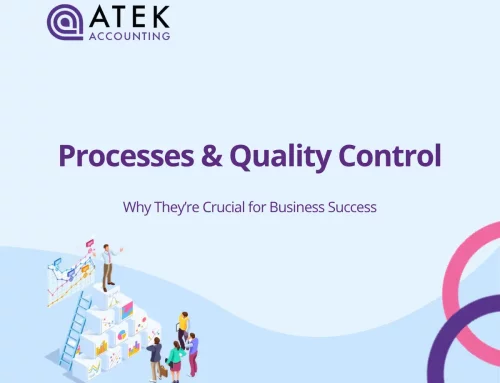
What Are Management Accounts?
Management accounts are a set of financial reports and summaries that provide a clear snapshot of a company’s financial performance and position. Unlike traditional financial statements, management accounts are tailored for internal use, helping business leaders and managers make informed decisions.
These reports typically include key financial indicators, such as revenue, expenses, profits, and cash flow, presented in a format that facilitates quick analysis.
By offering timely insights into a company’s financial health, management accounts enable leaders to strategise, identify areas for improvement, and make informed choices to drive the business forward.
Are Management Accounts Compulsory?
If you’re looking for a simple ‘Yes or No’ answer to the above question, then the short answer is “no” – A business does not have to have management accounts.
But the actual answer to ‘Should they be taken seriously?’ is “yes” – That is, if you want your business to be truly agile and in charge of its own success.
The better question to ask would be: How can they contribute to the success of my business?
What Are the Benefits of Management Accounts?
1. Genuinely understand financial performance
Management accounts will give you an insight into how your business is performing against expectations.
- Is the business performing ahead of or behind the forecast?
- What are the key areas that need more focus?
- Have costs increased unexpectedly?
- Are sales at the expected level?
- Is the profit margin % in line with the industry norm?
2. Make decisions based on key performance indicators (KPIs)
Setting KPIs relevant to your industry sector and business operations can provide an easy traffic light dashboard of areas that perform well versus areas that don’t. As an example, detailed analysis can be derived from the following KPIs for companies with SAAS (service as a software) revenue models.
-
Annual recurring revenue (ARR) or monthly (MRR):
- ARR calculates the value of subscription revenue over a period of time.
-
Churn rate:
- Churn rate (attrition) looks at the number of customers at the start of a period and the number of cancellations at the close of the period, thus giving the attrition rate.
-
Customer Lifetime Value:
- LTV reviews the economic value of a customer over its lifetime.
There are many more KPIs (both financial and non-financial) that can be incorporated, such as:
- Departmental costs against specific revenue lines
- Development staff productivity
- Project lifetime (actual and elapsed) from kick-off to delivery
Getting the right KPIs can really help to gain internal efficiencies, drive your business in the right direction, and help you target your marketing in the most successful and profitable areas.
3. Adapt using rolling forecasts for modelling
It is normal for businesses to set an annual budget; however, this can very quickly become out of date and not relevant to the ever-changing external and internal environmental factors. Let’s look at 2020 as an example, the year the world went into the start of an unexpected, long-term global pandemic that sent shock waves through businesses.
During this time (and beyond), businesses had to adapt quickly, reconsidering budgeted spending and revising expected revenue. Many businesses had to create business models to minimise losses in the grim reality of zero revenue.
With an ever-changing landscape, rolling forecasts can help manage these scenarios, providing flexible modelling for businesses in a fluid situation. Continually updating future expectations with a minimum of 12 months of visibility across financial statements and the all-important cash flow is invaluable.
4. Set action plans based on a professional review
It is sometimes difficult for businesses to focus on the key areas; therefore, a professional overview with commentary can highlight the highs and the lows of the period under review. Furthermore, recommendations can be provided that are driven by the data for your business. This may include, for example, creating an urgent action plan to address a particular problem area or, on the positive side, giving the team a well-deserved “pat on the back” for a job well done.
There is no point in going to the trouble of trying to future-proof your business if actions are not taken based on the information provided. We find review meetings help to focus the mind and agree on a strategy moving forward. It also gives accountability to the action points.
Set Up Your Management Accounts With Atek
Are you still asking the question, “Do we have to have management accounts?” or are you now asking, “When can we get started?”
Hopefully the latter. After all, an agile business increases its chances of sustainability, scalability, and success.
At Atek, we can help. Get started and set up your management accounts today. Contact us for an initial conversation with our team and learn more about our Accounts Preparation Services.
More resources:













